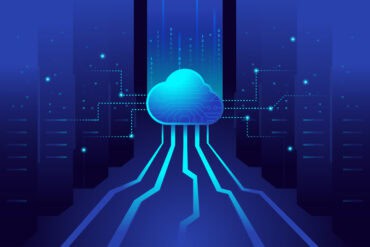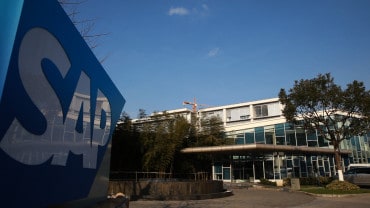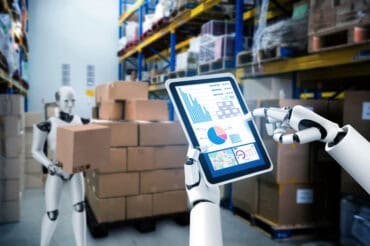
In the news this week: A COVID-19 Botathon challenges RPA developers to create innovative apps, MathWorks expands its AI capabilities, and more.
Keeping pace with news and developments in the real-time analytics market can be a daunting task. We want to help by providing a summary of some of the items our staff came across each week. Here is a short list of some news from this week:
Automation Anywhere announced the launch of the COVID-19 Botathon, inviting RPA developers across the globe to create innovative solutions and help find new ways to defend against the spread of COVID-19 and mitigate its impact on businesses and the economy. The Botathon is an addition to several solutions and use cases recently introduced by Automation Anywhere. It will showcase how intelligent automation innovations can help organizations navigate the challenges caused by COVID-19. All entries will be judged by a panel of industry experts based on a standard set of criteria, including impact, comprehensiveness, and the creativity of the solution. The Botathon will run until June 3, 2020, and is open to experienced RPA developers worldwide.
Alteryx, Inc. announced the launch of a new program called Advancing Data and Analytics Potential Together (ADAPT). ADAPT is the newest pillar of the company’s corporate social responsibility initiative, Alteryx For Good, and will offer free data training to thousands of workers globally who have found themselves unemployed due to the COVID-19 pandemic in 2020. Every graduate will be certified in the fundamentals of data analytics through Alteryx Core Certification. Participants in this academically rigorous program will learn the fundamentals of data science, before moving on to the increasingly important area of predictive analytics. The first stage of certification culminates with a timed two-hour exam, and upon completing the final predictive element, graduates will receive a Udacity Nanodegree.
MathWorks introduced Release 2020a with expanded AI capabilities for deep learning. Engineers can now train neural networks in the updated Deep Network Designer app, manage multiple deep learning experiments in a new Experiment Manager app, and choose from more network options to generate deep learning code. R2020a introduces new capabilities specifically for automotive and wireless engineers in addition to hundreds of new and updated features for all users of MATLAB and Simulink.
Cloudera announced an expanded set of production machine learning capabilities for MLOps is now available in Cloudera Machine Learning (CML). Organizations can manage and secure the ML lifecycle for production machine learning with CML’s new MLOps features and Cloudera SDX for models. Data scientists, machine learning engineers, and operators can collaborate in a single unified solution, drastically reducing time to value and minimizing business risk for production machine learning models.
Sinequa announced several new capabilities in its platform, now generally available. These critical capabilities include new connectors to expand the range of systems and formats that can be ingested. Additionally, there is support for named entity recognition packaged within the platform, for example, weights and measures and personally identifiable information (PII) across different geographies. Most notably, there are new capabilities to extend the platform’s ability to automatically conduct intelligent classification across vast amounts of indexed enterprise content and data. Sinequa has also expanded its natural language processing (NLP) capabilities with additional support for named entity recognition.
Boston Dynamics announced a partnership with Vinsa, a leader in customized computer vision solutions. Through the collaboration, Vinsa’s Intelligence Models can help bring new visual AI use cases to Spot, Boston Dynamics’ quadruped robotic platform, as well as other robotics using visual AI. When combined with state-of-the-art robotics such as Spot, Vinsa’s Intelligence Models can be deployed in as little as 30-45 days. Examples include automating labor-intensive tasks such as reading analog gauges, performing facility inspections, detecting anomalies on a manufacturing production line, and monitoring equipment and people to improve safety and maintain optimal machine performance.
Kinetica and Disaster Tech announced the release of the COVID-19 Real-time Crisis Management Platform to aggregate and track data relevant to COVID-19 emergency response today. The platform combines current data, such as hospital capacity and diversion status, locations of alternative medical sites, state-wide declarations, testing kit quantities, and protective equipment availability at a local level. The platform functionality is the direct result of a survey of emergency managers and emergency responders across disciplines, and blends data from 30 different government, public health, and private sector sources.
Iguazio announced a strategic partnership with NetApp that provides businesses with a simple, end-to-end solution for developing, deploying, and managing AI applications at scale and in real-time on top of the ONTAP AI framework. Iguazio’s integration with NetApp ONTAP AI leverages enterprise-grade data management, data versioning, and NetApp Cloud Volumes for a seamless hybrid cloud experience. It is also fully compatible with KubeFlow 1.0, offering a managed KubeFlow solution for enterprises. Also, the platform tightly integrates with NVIDIA DGX, allowing businesses to use GPU-as-a-Service and NGC containers. The solution automates pipelines across machine learning, deep learning, and data analytics.
Kryon announced the frontline implementation of its Full-Cycle Automation solution in collaboration with the Information Systems and Digital Division at Clalit Health Services, the largest health service organization in Israel with 4.5 million members. Kryon’s RPA solution automates a critical process of uploading COVID-19 test results to Clalit’s centralized database from eight separate laboratories distributed throughout the country. The testing is often administered by Magen David Adom (MDA), Israel’s national emergency pre-hospital medical and blood services organization, and then transferred to one of Clalit’s laboratories.
EdgeConneX is meeting growing interest in leveraging the data processing and decision-making benefits of Artificial Intelligence (AI) and Deep Learning. As a long-term member of the NVIDIA DGX-Ready Data Center program, the company’s edge facilities are inherently designed to support enterprises that need the power and performance of users of NVIDIA DGX™ systems. Whether end-users invest in a multi-system NVIDIA DGX POD or just a single DGX server, many require an off-premises colocation that supports the high-density power and low latency connectivity needed to facilitate compute-intensive infrastructure. With aglobal footprint of data centers in over 30 markets across North America, South America, and Europe, EdgeConneX can deliver up to 35kW or more power density per rack, capable of hosting large DGX system deployments. Thanks to its ability to build and operate data centers tailored to the optimal location requirements of its customers, EdgeConneX is effectively bringing intelligent edge capabilities locally to forward-thinking enterprises who are making the shift to becoming AI-driven businesses.
If your company has real-time analytics news, send your announcements to ssalamone@rtinsights.com.
In case you missed it, here are our most recent previous weekly real-time analytics news roundups:






























